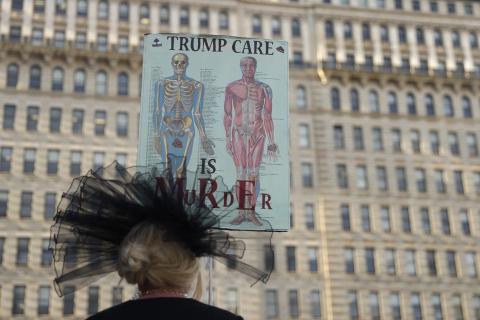A professional acquaintance was complaining to me last week about her indolent husband. Apparently he lives mostly on their couch, and his hobbies are eating and drinking. He eats decently when she cooks, but otherwise it’s Doritos and Mountain-Dew-type bedlam. There’s nothing he can do about all that, he says. This is how he was born to be.
I wondered why she was telling me this.
Her point was that several years ago he developed diabetes, and he became the perfect patient, in terms of showing up for doctors’ appointments and taking his prescription for metformin, which can help control his blood sugar. But he didn’t do anything to change his lifestyle—meaning eating well and moving. If anything, he got worse on those fronts.
Seeing the doctor and taking medicine can be important steps in treating a metabolic syndrome, but he got the impression that just by doing so he was taking care of himself.
This sort of psychological trap snags some people. Studies have even found that we tend to rate our own health more highly within weeks of acquiring health insurance, even if we’re doing nothing to actually make ourselves healthier. So could there be some paradoxical effect to health insurance? Something that offsets the obvious benefits?
On that note, in critiques of the Affordable Care Act—which has led to sizable improvements in health-care access—some Republican officials have argued that expanding insurance coverage hasn’t actually improved the health of the country. That could be due to psychological traps like the above, and to inefficiencies and errors in the healthcare system, and to the fact that while more people have coverage, it may not be usable, meaningful coverage. How beneficial, really, is health insurance?
Like everything undertaken in pursuit of health, returns vary person to person and case to case. But when constructing a health-care system for an entire nation, there is reason to know the stakes at a broad level. And despite all the factors above, health insurance time and again proves to be a life-saving proposition.
This was confirmed this week with one of the most comprehensive studies to date, a meta-analysis published in the journal Annals of Internal Medicine, titled “The Relationship of Health Insurance and Mortality: Is Lack of Insurance Deadly?” The finding was an unsurprising yes. But the degree of deadliness was what interested me. Is lacking health insurance really deadly, or just sort of?
The researchers were Steffie Woolhandler and David Himmelstein, both physicians and distinguished professors in the CUNY School of Public Health at Hunter College. They calculated that if the Senate health-care bill passes, an additional 28,600 Americans will die each year due to medical conditions that could have been prevented or treated if the person had health insurance.
That’s based on the average effect of health-insurance on human mortality, and the Congressional Budget Office projection that 22 million Americans would lose coverage under the new law.
“It’s fairly straightforward,” said Himmelstein. “Basically the literature says there’s a scientific consensus here, and the Republicans would like to ignore it or would like it not to be true.”
Past research has put the number as high as 44,000. It’s difficult to pin down with certainty because it would be of course unethical for a research institution to run a randomized control trial in which people were deprived of insurance and allowed to suffer and die. So the data come from the experiments running in real life.
The mortality increase is significant by either estimate. It doesn’t factor in what may be the most far-reaching health effect of the coverage gained under the Affordable Care Act: The number of personal bankruptcy filings has been cut in half since 2010, largely due to declines in medical bankruptcy. Nor do these numbers consider how many people will go bankrupt or die if the insurance markets themselves are thrown into a “death spiral,” which could well happen in the absence of an individual mandate and the presence of an administration that downplays the value of health insurance.
Himmelstein says that is seen as impolite to call any legislation “murder,” despite quantitative mortality numbers. He challenges that decorum. “I mean well if you kill people by policy is that any less killing them?” he said. “And in a way, this is like doing it for hire. The Republican plan says, well, we’re willing to sacrifice the coverage of 22 million people to give massive tax breaks to the wealthy people who donate to our campaigns.”
In an interview last week, Secretary of Health and Human Services Tom Price claimed that the projections of the Congressional Budget Office are incorrect, and that he would like all Americans to have access to health insurance—access being a key word, as opposed to coverage itself—despite the healthcare bill posing dramatic cuts to Medicaid.
To Woolhandler and Himmelstein, the way forward for repeal-and-replace is clear. They founded an organization in 1987 called Physicians for a National Health Program that advocates for single-payer medical care, and they advised Bernie Sanders during his presidential campaign. “We're more than ever convinced that single payer is the right way to go,” said Himmelstein. “The Affordable Care Act left 28 million people uninsured. I don’t think there’s a plausible route to universal coverage that’s not single payer.”


Spread the word